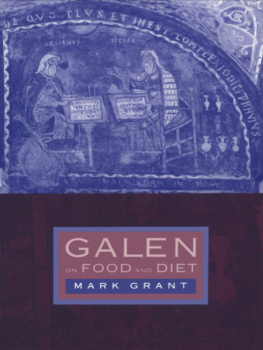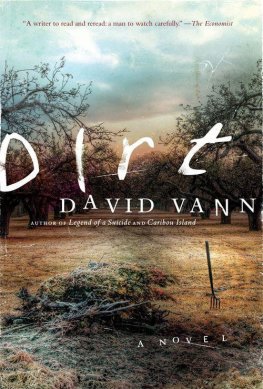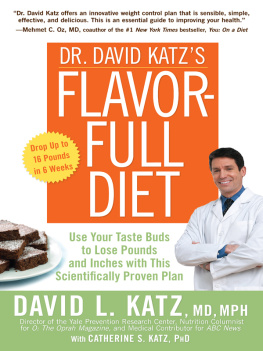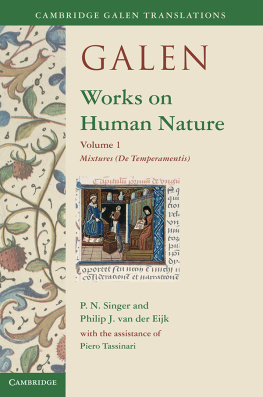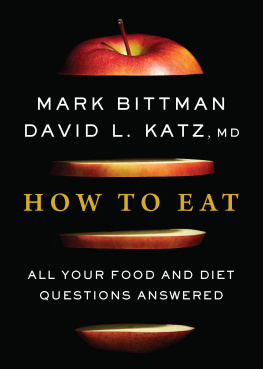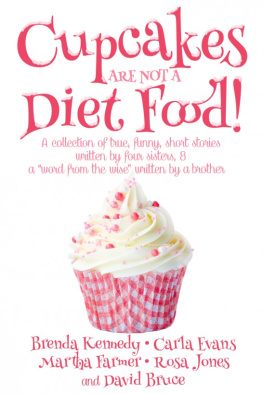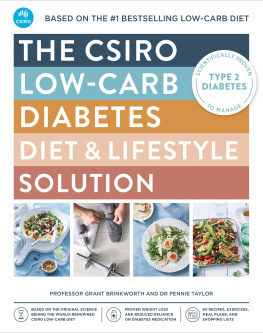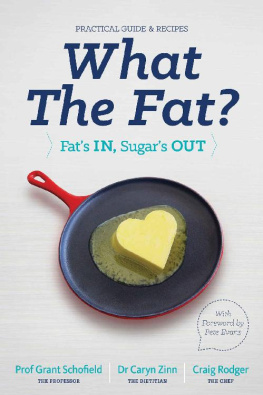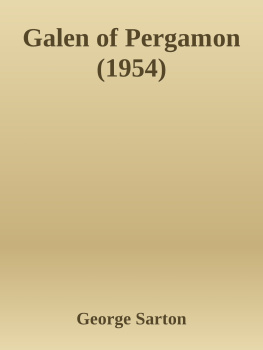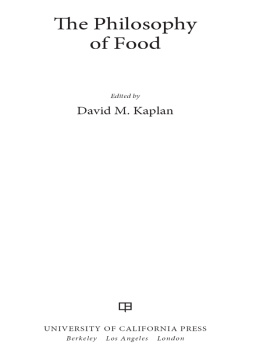Grant Mark David - Galen on Food and Diet
Here you can read online Grant Mark David - Galen on Food and Diet full text of the book (entire story) in english for free. Download pdf and epub, get meaning, cover and reviews about this ebook. City: London, year: 2000;2011, publisher: Taylor & Francis (CAM);Routledge, genre: Religion. Description of the work, (preface) as well as reviews are available. Best literature library LitArk.com created for fans of good reading and offers a wide selection of genres:
Romance novel
Science fiction
Adventure
Detective
Science
History
Home and family
Prose
Art
Politics
Computer
Non-fiction
Religion
Business
Children
Humor
Choose a favorite category and find really read worthwhile books. Enjoy immersion in the world of imagination, feel the emotions of the characters or learn something new for yourself, make an fascinating discovery.
- Book:Galen on Food and Diet
- Author:
- Publisher:Taylor & Francis (CAM);Routledge
- Genre:
- Year:2000;2011
- City:London
- Rating:4 / 5
- Favourites:Add to favourites
- Your mark:
- 80
- 1
- 2
- 3
- 4
- 5
Galen on Food and Diet: summary, description and annotation
We offer to read an annotation, description, summary or preface (depends on what the author of the book "Galen on Food and Diet" wrote himself). If you haven't found the necessary information about the book — write in the comments, we will try to find it.
Galen on Food and Diet — read online for free the complete book (whole text) full work
Below is the text of the book, divided by pages. System saving the place of the last page read, allows you to conveniently read the book "Galen on Food and Diet" online for free, without having to search again every time where you left off. Put a bookmark, and you can go to the page where you finished reading at any time.
Font size:
Interval:
Bookmark:

GALEN ON FOOD AND DIET
The modern world is fascinated by diet and the effect it can have on health, with advice abounding on what we should or should not eat. This pre-occupation was also very much a feature of the ancient world, at least among those who could afford the time and money to listen to the advice of a doctor.
At the apogee of ancient medical advances stood Galen (AD 129-c. AD 210), once the personal physician to the emperor Marcus Aurelius. A prolific writer, among his surviving works is what he believed to be the definitive guide to a healthy diet, based on the theory of the four humours. In these treatises Galen sets out this theory, which was to be profoundly influential on medicine for many centuries, and describes in fascinating detail the effects on health of a vast range of foods, from lettuce, lard and fish to peaches, pickles and hyacinths.
Galen on Food and Diet makes all these texts available in English for the first time, and provides many captivating insights into the ancient understanding of food and health. With clear, elegant translations, supported by a lucid introduction, helpful notes, and an extensive bibliography, this volume is an invaluable resource for classicists, ancient historians and all those interested in the history of food.
Mark Grant is a Classics teacher at Haileybury College in Hertford. He has worked as a cook and trained in catering management, and has researched into Roman food and diet for more than twenty years. His previous publications include Anthimus: On the Observance of Foods (1996), Dieting for an Emperor (1997) and Roman Cookery: Ancient Recipes for Modern Kitchens (1999).
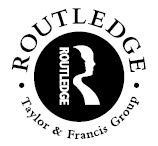
London and New York
First published 2000
by Routledge
11 New Fetter Lane, London EC4P 4EE
Simultaneously published in the USA and Canada
by Routledge
29 West 35th Street, New York, NY 10001
Routledge is an imprint of the Taylor & Francis Group
This edition published in the Taylor & Francis e-Library, 2001.
2000 Mark Grant
All rights reserved. No part of this book may be reprinted or reproduced or utilised in any form or by any electronic, mechanical, or other means, now known or hereafter invented, including photocopying and recording, or in any information storage or retrieval system, without permission in writing from the publishers.
British Library Cataloguing in Publication Data
A catalogue record for this book is available from the British Library.
Library of Congress Cataloging-in-Publication Data
Galen
[Selection. English. 2000]
Galen on food and diet / [Translation and notes by] Mark Grant.
224 pp. 15.6 x 23.4 cm.
Includes biographical references and index.
1. Nutrition Early works to 1800.
2. Diet therapy Early works to 1800.
I. Title: On food and diet. II. Grant, Mark. III. Title.
QP 141.G25213 2000
613.2dc2100-036628
ISBN 0-415-23232-5 (hbk)
ISBN 0-415-23233-3 (pbk)
ISBN 0-203-13107-X Master e-book ISBN
ISBN 0-203-17684-7 (Glassbook Format)
In memory of Fred Luck
19091993
and Maria Luck (ne Sznt)
18991988
for their humanity and generosity
In that remarkable novel The French Lieutenants Woman by John Fowles there is a scene where a doctor has a discussion with a geologist. This is not a notable event in itself: the twist is that they both have common scientific ground. The nineteenth century witnessed the twilight of that general unity of arts and sciences which stretched back to the philosophers of the sixth century BC living on the Aegean coast of what is now Turkey. Then medicine was so closely linked with philosophy that later scientific progress was virtually strangled by the desire to force logical perfection on to nature.
There are few today who can claim to be as conversant in one discipline as the other, for the sum of knowledge has expanded multifariously. Galen could write on anything from linguistic problems to the intrigues in the imperial palace, but he was an intellectual giant even in his own age. Any errors in this book must therefore be ascribed to my lay conceptions of medicine, although my own fascination with things medical is surely the result of my being born into a family of physicians.
Many people have inspired me in my work, but at the cost of seeming invidious I would like to mention just two of them. Professor Elizabeth Craik has been my academic lodestone amidst the hurly-burly of school teaching, whilst Professor Ian Kidd afforded me the priceless opportunity to engage in postgraduate study at the lovely University of St Andrews where I first began reading Galen. My dear Alison, Anna and Toby have kindly shown their indulgence in my classical preoccupations without branding me as too eccentric a father and husband.
Mark Grant
Haileybury College,
January 2000
INTRODUCTION
The life of Galen
Medicine occupies a central position in our lives today. We expect to be diagnosed correctly and to receive the latest treatment based on extensive scientific research. The media enthusiastically recount breakthroughs in our understanding of disease, or complex operations that can restore our quality of life. Alongside this progress psychologists have noted our increasing bewilderment and even anger in the face of death. Wonder at what medicine can achieve is disturbed by what it cannot. It is difficult then to envisage a world where medicine could offer only some comfort and where death, especially among the very young, was always lurking as a very real threat. Yet many historians concede that palliative care by Galen would have been far preferable to anything that was to be available until the closing years of the nineteenth century.
Galen was born in AD 129 at Pergamum, a large city on the Aegean seaboard of what is now Turkey. As his father was an architect and interested in education, Galen was given lessons in mathematics and geometry. For a child from a wealthy background this was in some ways unusual, the emphasis in Roman schools being on the literature and rhetoric necessary for a career as a lawyer or a town councillor. On the other hand architecture, whilst an essential part of Roman civilisation, was not a profession that commanded a particularly high status. This liberal and in some ways radical background allowed Galen the scope to experiment: he was not bound by his family to enter into what was regarded as a traditionally safe career. Moreover, since Pergamum had long been an intellectual and cultural centre, Galen was able to attend the lectures of the Stoic and Platonist philosophers who were attracted to the city by its great library. It is an indication of his mental abilities that Galen was only fourteen when he began these studies.
In addition to its academic excellence, Pergamum was a religious centre with a large sanctuary dedicated to Asclepius. As the son of Apollo, Asclepius acted like a bridge between the divine and the human, for although he was a powerful deity, he was nevertheless concerned enough with mortals to try to combat death through his patronage of medicine. Healing by psychological means was conducted at temples around the Roman world, the sick sleeping in the precincts in the hope of dreaming about their own particular cures. Even outside the temples, dreams were held to predict the future and advise on future courses of action. When Galen was seventeen his father received such a sign: he was to study medicine.
Font size:
Interval:
Bookmark:
Similar books «Galen on Food and Diet»
Look at similar books to Galen on Food and Diet. We have selected literature similar in name and meaning in the hope of providing readers with more options to find new, interesting, not yet read works.
Discussion, reviews of the book Galen on Food and Diet and just readers' own opinions. Leave your comments, write what you think about the work, its meaning or the main characters. Specify what exactly you liked and what you didn't like, and why you think so.

